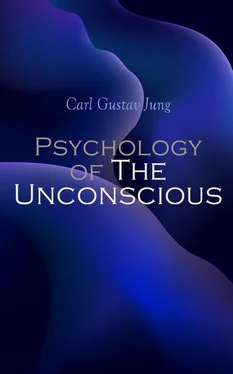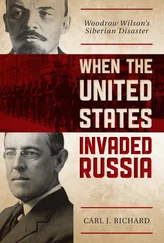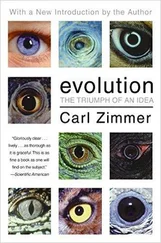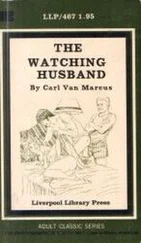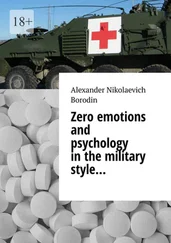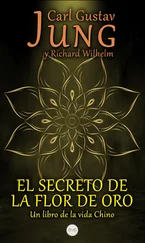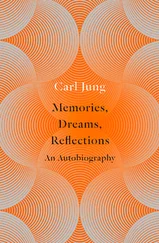Carl Jung - Psychology of The Unconscious
Здесь есть возможность читать онлайн «Carl Jung - Psychology of The Unconscious» — ознакомительный отрывок электронной книги совершенно бесплатно, а после прочтения отрывка купить полную версию. В некоторых случаях можно слушать аудио, скачать через торрент в формате fb2 и присутствует краткое содержание. Жанр: unrecognised, на английском языке. Описание произведения, (предисловие) а так же отзывы посетителей доступны на портале библиотеки ЛибКат.
- Название:Psychology of The Unconscious
- Автор:
- Жанр:
- Год:неизвестен
- ISBN:нет данных
- Рейтинг книги:4 / 5. Голосов: 1
-
Избранное:Добавить в избранное
- Отзывы:
-
Ваша оценка:
- 80
- 1
- 2
- 3
- 4
- 5
Psychology of The Unconscious: краткое содержание, описание и аннотация
Предлагаем к чтению аннотацию, описание, краткое содержание или предисловие (зависит от того, что написал сам автор книги «Psychology of The Unconscious»). Если вы не нашли необходимую информацию о книге — напишите в комментариях, мы постараемся отыскать её.
Psychology of The Unconscious — читать онлайн ознакомительный отрывок
Ниже представлен текст книги, разбитый по страницам. Система сохранения места последней прочитанной страницы, позволяет с удобством читать онлайн бесплатно книгу «Psychology of The Unconscious», без необходимости каждый раз заново искать на чём Вы остановились. Поставьте закладку, и сможете в любой момент перейти на страницу, на которой закончили чтение.
Интервал:
Закладка:
The infantile scene cannot carry through its revival; it must be satisfied with its return as a dream. From this conception of the historical side of regression, it follows consequently that the modes of conclusion of the dream, in so far as one may speak of them, must show at the same time an analogous and infantile character. This is truly the case, as experience has abundantly shown, so that to-day every one who is familiar with the subject of dream analysis confirms Freud’s proposition that dreams are a piece of the conquered life of the childish soul . Inasmuch as the childish psychic life is undeniably of an archaic type, this characteristic belongs to the dream in quite an unusual degree. Freud calls our attention to this especially.
“The dream, which fulfils its wishes by a short, regressive path, affords us only an example of the primary method of working of the psychic apparatus, which has been abandoned by us as unsuitable. That which once ruled in the waking state, when the psychical life was still young and impotent, appears to be banished to the dream life, in somewhat the same way as the bow and arrow, those discarded, primitive weapons of adult humanity, have been relegated to the nursery.” [32]
All this experience suggests to us that we draw a parallel between the phantastical, mythological thinking of antiquity and the similar thinking of children, between the lower human races and dreams. [33]This train of thought is not a strange one for us, but quite familiar through our knowledge of comparative anatomy and the history of development, which show us how the structure and function of the human body are the results of a series of embryonic changes which correspond to similar changes in the history of the race. Therefore, the supposition is justified that ontogenesis corresponds in psychology to phylogenesis. Consequently, it would be true, as well, that the state of infantile thinking in the child’s psychic life, as well as in dreams, is nothing but a re-echo of the prehistoric and the ancient. [34]
In regard to this, Nietzsche takes a very broad and remarkable standpoint. [35]
“In our sleep and in our dreams we pass through the whole thought of earlier humanity. I mean, in the same way that man reasons in his dreams, he reasoned when in the waking state many thousands of years. The first causa which occurred to his mind in reference to anything that needed explanation, satisfied him and passed for truth. In the dream this atavistic relic of humanity manifests its existence within us, for it is the foundation upon which the higher rational faculty developed, and which is still developing in every individual. The dream carries us back into earlier states of human culture, and affords us a means of understanding it better. The dream thought is so easy to us now, because we are so thoroughly trained to it through the interminable stages of evolution during which this phantastic and facile form of theorizing has prevailed. To a certain extent the dream is a restorative for the brain, which during the day is called upon to meet the severe demands for trained thought, made by the conditions of a higher civilization.
“From these facts, we can understand how lately more acute logical thinking, the taking seriously of cause and effect, has been developed; when our functions of reason and intelligence still reach back involuntarily to those primitive forms of conclusion, and we live about half our lives in this condition.”
We have already seen that Freud, independently of Nietzsche, has reached a similar standpoint from the basis of dream analysis. The step from this established proposition to the perception of the myths as familiar dream images is no longer a great one. Freud has formulated this conclusion himself. [36]
“The investigation of this folk-psychologic formation, myths, etc., is by no means finished at present. To take an example of this, however, it is probable that the myths correspond to the distorted residue of wish phantasies of whole nations, the secularized dreams of young humanity.”
Rank [37]understands the myths in a similar manner, as a mass dream of the people. [38]Riklin [39]has insisted rightly upon the dream mechanism of the fables, and Abraham [40]has done the same for the myths. He says:
“The myth is a fragment of the infantile soul-life of the people.”
and
“Thus the myth is a sustained, still remaining fragment from the infantile soul-life of the people, and the dream is the myth of the individual.”
An unprejudiced reading of the above-mentioned authors will certainly allay all doubts concerning the intimate connection between dream psychology and myth psychology. The conclusion results almost from itself, that the age which created the myths thought childishly—that is to say, phantastically, as in our age is still done, to a very great extent (associatively or analogically) in dreams. The beginnings of myth formations (in the child), the taking of phantasies for realities, which is partly in accord with the historical, may easily be discovered among children.
One might raise the objection that the mythological inclinations of children are implanted by education. The objection is futile. Has humanity at all ever broken loose from the myths? Every man has eyes and all his senses to perceive that the world is dead, cold and unending, and he has never yet seen a God, nor brought to light the existence of such from empirical necessity. On the contrary, there was need of a phantastic, indestructible optimism, and one far removed from all sense of reality, in order, for example, to discover in the shameful death of Christ really the highest salvation and the redemption of the world. Thus one can indeed withhold from a child the substance of earlier myths but not take from him the need for mythology. One can say, that should it happen that all traditions in the world were cut off with a single blow, then with the succeeding generation, the whole mythology and history of religion would start over again. Only a few individuals succeed in throwing off mythology in a time of a certain intellectual supremacy—the mass never frees itself. Explanations are of no avail; they merely destroy a transitory form of manifestation, but not the creating impulse.
Let us again take up our earlier train of thought.
We spoke of the ontogenetic re-echo of the phylogenetic psychology among children, we saw that phantastic thinking is a characteristic of antiquity, of the child, and of the lower races; but now we know also that our modern and adult man is given over in large part to this same phantastic thinking, which enters as soon as the directed thinking ceases. A lessening of the interest, a slight fatigue, is sufficient to put an end to the directed thinking, the exact psychological adaptation to the real world, and to replace it with phantasies. We digress from the theme and give way to our own trains of thought; if the slackening of the attention increases, then we lose by degrees the consciousness of the present, and the phantasy enters into possession of the field.
Here the important question obtrudes itself: How are phantasies created? From the poets we learn much about it; from science we learn little. The psychoanalytic method, presented to science by Freud, shed light upon this for the first time. It showed us that there are typical cycles. The stutterer imagines he is a great orator. The truth of this, Demosthenes, thanks to his energy, has proven. The poor man imagines himself to be a millionaire, the child an adult. The conquered fight out victorious battles with the conquerer; the unfit torments or delights himself with ambitious plans. We imagine that which we lack. The interesting question of the “why” of all this we must here leave unanswered, while we return to the historic problem: From what source do the phantasies draw their materials? [41]We chose, as an example, a typical phantasy of puberty. A child in that stage before whom the whole frightening uncertainty of the future fate opens, puts back the uncertainty into the past, through his phantasy, and says, “If only I were not the child of my ordinary parents, but the child of a rich and fashionable count, and had been merely passed over to my parents, then some day a golden coach would come, and the count would take his child back with him to his wonderful castle,” and so it goes on, as in Grimm’s Fairy Tales which the mother tells to her children. [42]With a normal child, it stops with the fugitive, quickly-passing idea which is soon covered over and forgotten. However, at one time, and that was in the ancient world of culture, the phantasy was an openly acknowledged institution. The heroes,—I recall Romulus and Remus, Semiramis, Moses and many others,—have been separated from their real parents. [43]Others are directly sons of gods, and the noble races derive their family trees from heroes and gods. As one sees by this example, the phantasy of modern humanity is nothing but a re-echo of an old-folk-belief, which was very widespread originally. [44]The ambitious phantasy chooses, among others, a form which is classic, and which once had a true meaning. The same thing holds good in regard to the sexual phantasy. In the preamble we have spoken of dreams of sexual assault: the robber who breaks into the house and commits a dangerous act. That, too, is a mythological theme, and in the prehistoric era was certainly a reality too. [45]Wholly apart from the fact that the capture of women was something general in the lawless prehistoric times, it was also a subject of mythology in cultivated epochs. I recall the capture of Proserpina, Deianira, Europa, the Sabine women, etc. We must not forget that, even to-day, marriage customs exist in various regions which recall the ancient custom of marriage by capture.
Читать дальшеИнтервал:
Закладка:
Похожие книги на «Psychology of The Unconscious»
Представляем Вашему вниманию похожие книги на «Psychology of The Unconscious» списком для выбора. Мы отобрали схожую по названию и смыслу литературу в надежде предоставить читателям больше вариантов отыскать новые, интересные, ещё непрочитанные произведения.
Обсуждение, отзывы о книге «Psychology of The Unconscious» и просто собственные мнения читателей. Оставьте ваши комментарии, напишите, что Вы думаете о произведении, его смысле или главных героях. Укажите что конкретно понравилось, а что нет, и почему Вы так считаете.
